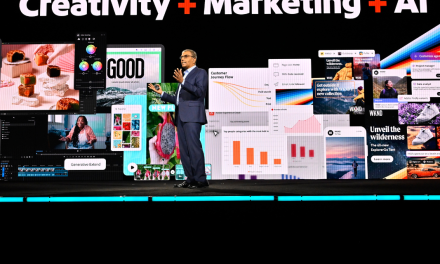With these 5 strategies in place your business will be set to succeed during the downturn and have momentum once the economic tide turns once more.
It is undeniable that the global economy is contracting. In this year’s second quarter, countries including Singapore have narrowed their economic forecasts to reflect an increasingly challenging global environment, many analysts are predicting an imminent recession. Brand leaders naturally have reason to be worried. However, history has taught us that a recession does not – and should not – mean suspending efforts to drive performance and growth. Indeed, the opposite can be achieved with these five strategies.

1) Step away from the chopping board
When times are hard, marketing and advertising budgets tend to be the first on the chopping block. In an economic downturn, such cuts may help businesses generate short-term benefits. In the long-term, however, business leaders have more to gain from increasing their marketing budgets rather than depleting them. Research now shows that continued marketing investment boosts sales and market share during recessions and more importantly, afterwards. And, once a recession ends, which they always do, businesses with fewer marketing assets face decreased profitability and severe disruption to their growth.
2) Be seen
During an economic downturn, the ‘noise level’ across the advertising landscape diminishes. With less competitive activity in the product category, brands have more opportunities to claim attention and mindshare from their consumers. This in itself serves as a window of opportunity for brands to reposition themselves or even introduce new products.
Marketers who ramp up investments during a recession can gain a better share of voice, and therefore, an increased share of the market.
At the same time, advertisers often find themselves with more bargaining power for advertising placement which in turn drives more competitive pricing from media owners.Better priced placement should then lead to increased opportunity for improved ROI.
3) Beware of the bots
Increasing advertising spending during a recession always comes with a word of caution: more money does not always mean better results.
Instead, taking a nuanced approach that identifies prospective customers who have a high propensity to buy is key. Marketers need to understand where their audience is and how they interact with their brand. Following that, they need to assess whether their campaign outcomes are aligned with these behaviours.
With that clarity in place, marketers are in a position to consider whether they have the right blend of performance and programmatic in their plans, and whether they are validating every advertising engagement.
Essentially, the focus should be to ‘do more, with less’, which can only be achieved if all digital traffic is verified and attributable. Marketers must be prepared to proactively block invalid traffic from bots (fraud), low quality or competitor clicks and therefore redirect threatened ad spend to better-performing traffic.
4) Always optimise
Getting the best possible result from an advertising campaign will always be a marketing priority. However, during a recession, this becomes critical to survival, especially as a sense of consumer pessimism grips markets such as Malaysia.
Ad strategies that put optimisation at the centre not only achieve quality and targeted audience engagement but also meaningful results driving the business’s bottom line. As such optimisation can generate a brand’s growth, giving them an extra edge over their competitors, who chose a more conservative approach.
Paired together optimisation and ad fraud detection tools can help sustain a campaign’s performance, thereby driving improved customer lifetime value.
5) The devil is always in the data
Advertising in a tightening market requires always being aware of what’s working and what’s not. This requires data-driven insights that shine a lens on advertising engagement, as well as customers’ conversion journeys.
Strong audience behaviour insights allow marketers to review and tailor their tactics accordingly while maximising ad spending efficiently. Leveraging the data from an optimised ad strategy, businesses can ensure their campaigns are delivering on their objectives, enabling growth throughout the recession and beyond.
Bearing in mind the cyclical nature of these economic shifts, marketers should see downturns as an opportunity to grow their share of voice as competitors’ budgets shrink. They also present an opportunity to step back and reflect on whether your marketing and media strategies are really driving success.
At the same time, a recession means that every dollar counts. Therefore, any wastage through ad fraud and poor optimisation should be eliminated. But with challenge comes opportunity. With these 5 strategies in place your business will be set to succeed during the downturn and have momentum once the economic tide turns once more.



















